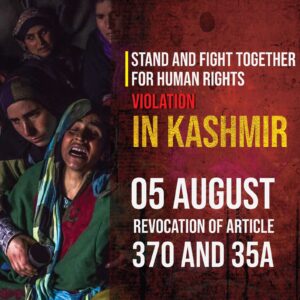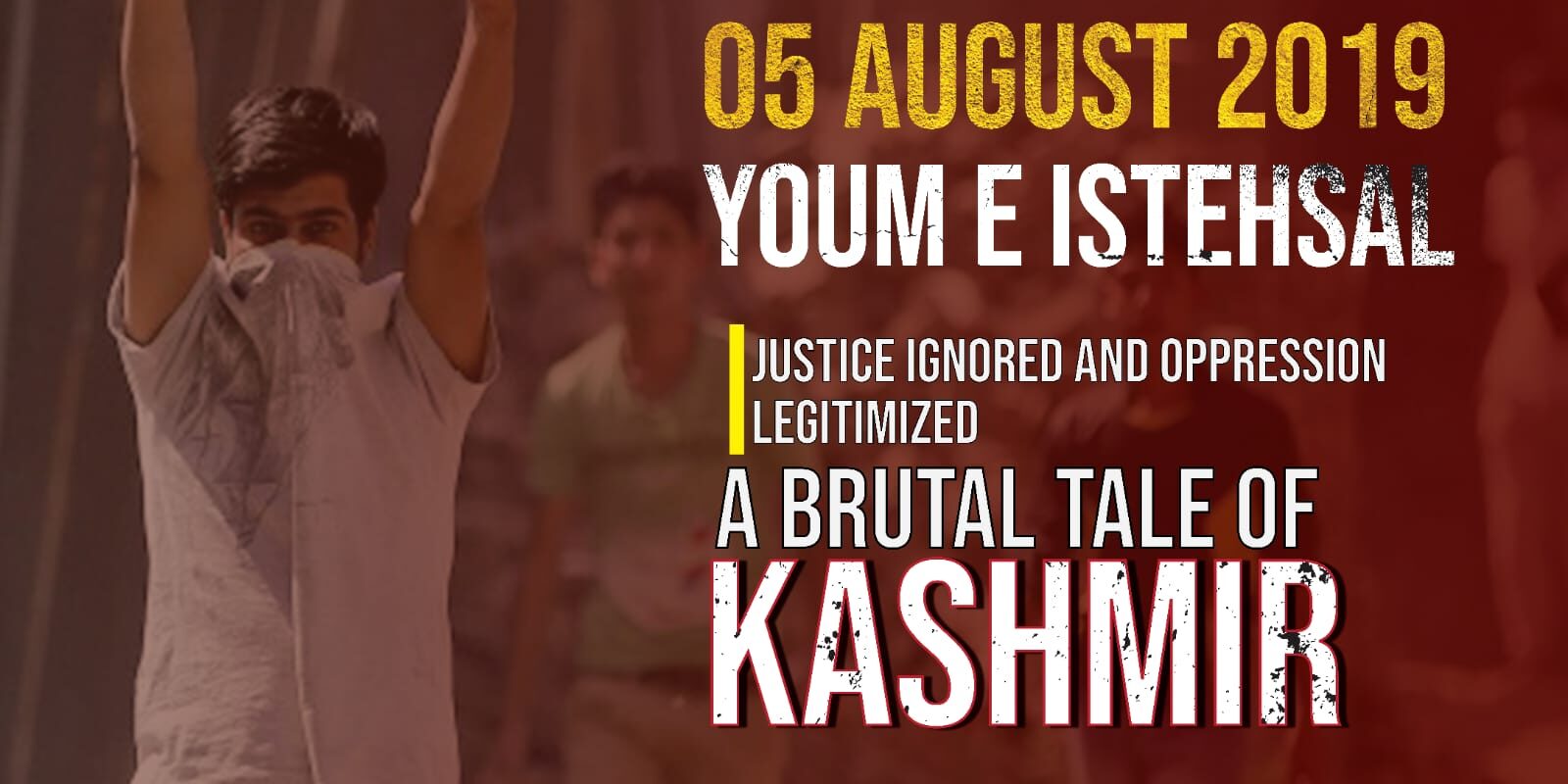
On August 5, 2019, India finally abolished the special status of Kashmir, which had already been through many changes over the decades. The abrogation of articles 370 and 35A was a great setback for the Kashmiris of IIOJK who are now struggling for the preservation of their identity. The move was followed by months of strict curfews and communication blackouts, making it a hot topic of discussion. Sadly, it didn’t last long. Thanks to the covid-19 pandemic that caused a stir, Kashmir once again plunged into the darkness.
This decision was illegal, not only against the UN resolutions on Kashmir but also affected the credibility of the Indian constitution. BJP leaders, declaring Article 370 a root cause of problems in the region, added its elimination as a part of their manifesto for the elections in 2019. while BJP leaders keep on saying that the decision is constitutionally sound “A temporary provision of constitution was finally put to rest” (J. Shankar, India Today, 2022), the Supreme Court of India has already declared that Article 370 is not a temporary provision, it has become permanent over the period (WION, 4th April 2018). So, the presidential order of 2019 does not abrogate Article 370 as the RSS and BJP have always demanded (A.G. Noorani, 2019). Article 370 puts the limit to the president’s power limiting it to the areas of defense, communication, and foreign affairs, going beyond that will need the approval of the state’s constituent assembly which no longer exists, dissolved on 26th January 1957 it also eliminates the chance to add more president’s power under article 370. So the move itself face many legal complications.
whenever BJP leaders are enquired about the party’s historical nefarious move in IIOJK, they boast of the development goals in IIOJK but if that doesn’t work out they try to run off by simply saying that whatever happens in Jammu & Kashmir is an internal matter of India and being a sovereign state, it won’t tolerate any interference. Jammu & Kashmir, which India has besieged illegaly, is or will never be a private matter of India. First, it is a disputed region between India and Pakistan. Second, since India sought UN intervention in 1947, the issue has become international.
So, what does revocation of article 370 really mean? Did it cause any sort of development there? Well ! It’s been five years it turns out that BJP was just bragging about the lofty goals of development in Kashmir. Many reputable Indian analysts who have supported the decision are now regretting it. In the name of development India is sucking the blood of Kashmiris. During the time of pandemic when learning was shift to online mode, the students in Kashmir lost their one academic year. With 2G speed of internet India was really joking with their future.
If India is really concerned about Kashmir’s development, then the first thing it should do is to organize a fair plebiscite. It’s up to Kashmiris then whom they choose, And that country will surely be responsible for its development same like the national elections when people’ elected representatives form government and are responsible for the development of whole nation.
Eradicating terrorism in the state is another absurd excuse that India gave behind its illegal actions of August 5. Even after the deployment of more than 700,000 soldiers and confining people’s movement in the valley if India says that it faces terrorism in the region then it is really a good joke. Perhaps India may have achieved the so-called peace “They create desert and call it peace”. The threat is not terrorism but the fear India has because of the great resistance by the majority of Muslim Kashmir which continuously hinders the Indian rule over the state. If peace is to be achieved by crushing every existing opposing force, then there should be no opposition in any country, whether in the form of political parties or public protests.
Apart from that, the move also reflects BJP cunning techniques to strengthen its vote bank in IIOJK. For that it has started the demographic engineering. More Hindus in the region will result in a strong hold of BJP in J&K. Before abrogation India detained many politicians and social activities, because India knew that whatever it is going to do will absolutely cause a great uproar in valley.
The people of IIOJK are living in isolation. It is like they are in a big jail, guarded by thousands of soldiers with big guns to which they are no match Human rights watchdogs have raised concerns about the condition of human rights in the region, but India ignores the critics by simply saying that they are unable to produce a shred of evidence. India consider IIOJK its colony that’s why it always ignores the will of people living there for decades. Nehru once said “Real integration comes of the mind and the heart and not of some clause which you may impose on other people” (A.G. Noorani, 2019). India should better understand this.
International community silence was really depressing at the moment. India should have been criticized for its brutality in the region. It’s very disappointing that the certain ‘We’ the so-called leaders of liberal order who founded U.N. for the prevalence of liberalism, failed to address the worries of innocent Kashmiris. Modi’ pet are involved in war time crimes. They slaughter Kashmiris mercilessly. Do their lives not matter at all? It seems that they are all alone in their fight of freedom and self-determination against India.
when others talk about liberty,
They dream it all alone.
When others live in peace,
They bleed all alone.
The writer Amna is an Intern at YFK- International Kashmir Lobby Group, and a student of International Relation at IIUI.
- Kashmir Martyrs day - July 24, 2024
- Heroic Hearts: Remembering Kashmir’s Martyr - July 24, 2024
- Burhan Wani: The Icon of Kashmir’s Resistance - July 11, 2024







